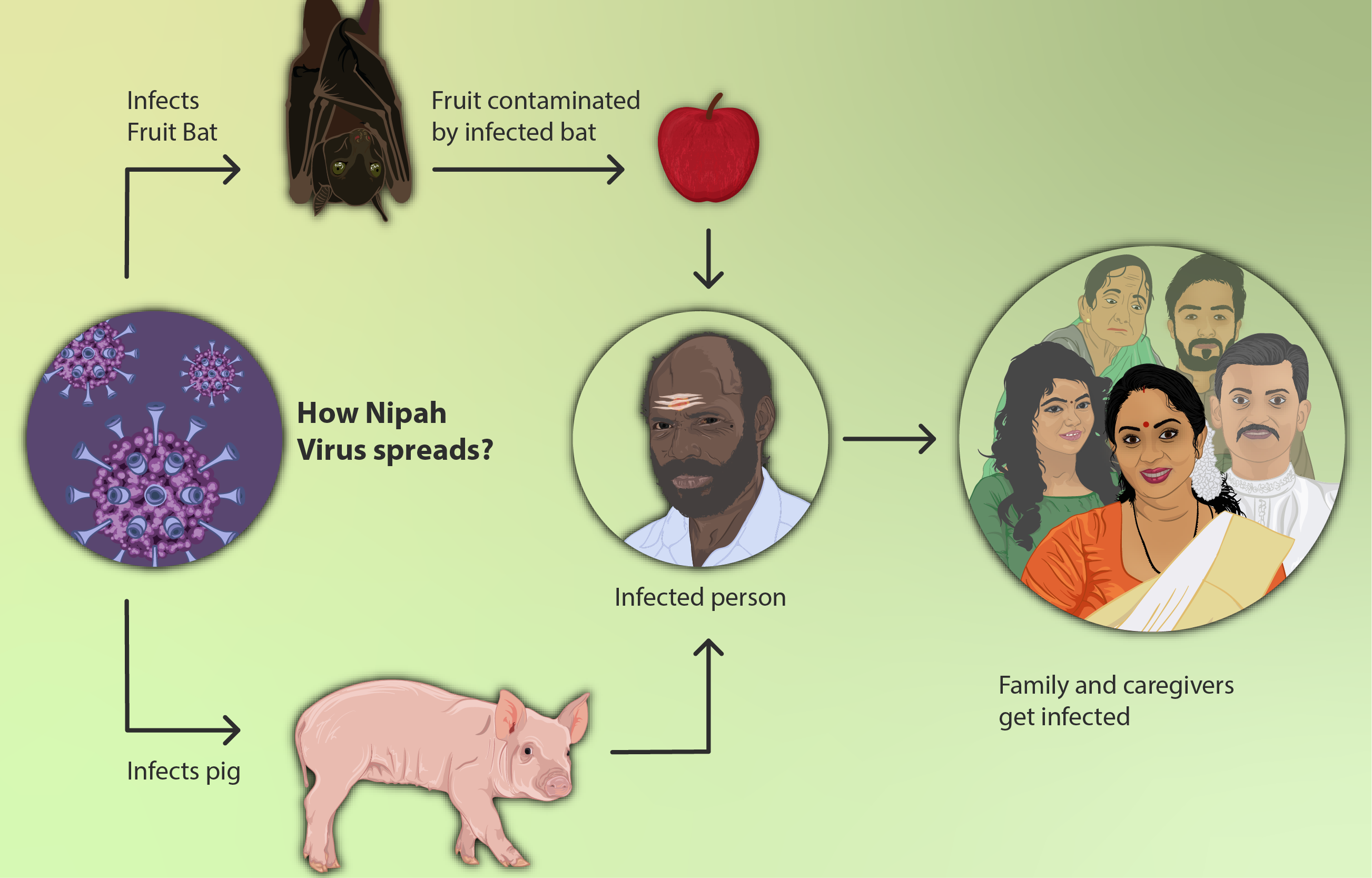CURRENT AFFAIRS
Get the most updated and recent current affair content on Padhaikaro.com
Nipah Virus reappears in Kerala
- Integrity Education, Delhi
- 06, Sep 2021

- In India, the outbreaks have so far been limited to West Bengal and Kerala.
- Nipah virus infection is a zoonotic illness that is transmitted to people from animals, and can also be transmitted through contaminated food or directly from person-to-person
- During the first recognized outbreak in Malaysia, which also affected Singapore, most human infections resulted from direct contact with sick pigs or their contaminated tissues.
- In subsequent outbreaks in Bangladesh and India, consumption of fruits or fruit products (such as raw date palm juice) contaminated with urine or saliva from infected fruit bats was the most likely source of infection.
- There are no vaccines available against Nipah virus.
Signs and symptoms
- Human infections range from asymptomatic infection to acute respiratory infection (mild, severe), and fatal encephalitis.
- Infected people initially develop symptoms including fever, headaches, myalgia (muscle pain), vomiting and sore throat.
- This can be followed by dizziness, drowsiness, altered consciousness, and neurological signs that indicate acute encephalitis
- The incubation period (interval from infection to the onset of symptoms) is believed to range from 4 to 14 days.